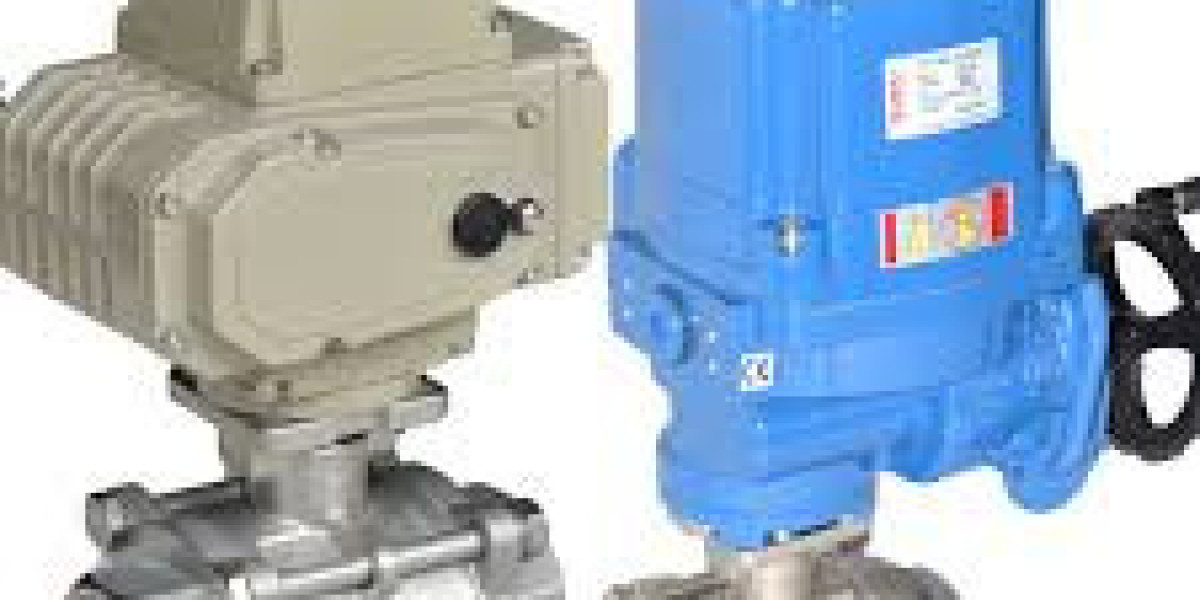In the highly demanding environments of oil, gas, and chemical industries, precision, safety, and reliability are paramount. Any disruption in flow control can result in operational inefficiencies, equipment damage, or even hazardous incidents. Automated motorized valves are designed for automated flow management, providing accurate, reliable, and safe control of liquids and gases in pipelines, reactors, storage tanks, and processing units.
With advanced automation technology, high-quality materials, and rigorous safety testing, automated motorized valves have become an indispensable component for modern industrial plants. These valves not only optimize operations but also reduce human intervention, ensuring safer and more efficient processes.
What Are Automated Motorized Valves?
Automated motorized valves are valves operated by electric actuators that allow automatic control of fluid flow. Unlike manual valves, which require physical operation, motorized valves can be controlled remotely via control systems such as PLC, SCADA, or DCS.
In oil, gas, and chemical plants, these valves handle various types of media, including crude oil, natural gas, chemical reagents, and steam. The actuator receives an electric signal, converting it into mechanical motion that opens, closes, or modulates the valve. This ensures precise flow control, which is critical in high-risk environments where accuracy and safety are non-negotiable.
Key Features of Automated Motorized Valves
Electric actuation for automation
These valves operate using electric actuators, allowing integration into automated plant systems. This enables remote operation, programmable logic control, and automated responses to system demands.High reliability in harsh conditions
Built to withstand extreme pressures, temperatures, and corrosive chemicals, automated motorized valves maintain consistent performance in demanding environments.Precise flow control
Automated actuation ensures exact positioning of the valve, allowing accurate regulation of fluid flow and preventing process fluctuations.Durable construction
Made from stainless steel, carbon steel, or high-performance alloys, these valves resist corrosion, abrasion, and wear, ensuring a long service life.Wide range of compatibility
Suitable for ball valves, butterfly valves, gate valves, and globe valves, automated motorized valves can be adapted for various oil, gas, and chemical processes.Safety compliance and testing
All valves undergo rigorous testing, including pressure, leakage, torque, and electrical insulation tests. Many also comply with API, ISO, and CE standards, ensuring safe and reliable operation.
Advantages of Using Automated Motorized Valves
Enhanced safety
Automated operation reduces human exposure to hazardous media and extreme environments, significantly lowering the risk of accidents.Remote monitoring and control
Integration with SCADA or PLC systems allows operators to monitor valve status and control flow remotely, improving efficiency and reducing manual labor.Energy efficiency
Electric actuators consume less energy compared to pneumatic or hydraulic systems, making operations more cost-effective and environmentally friendly.Reduced downtime
Automated valves are designed for durability and minimal maintenance. Quick response and automated operation reduce downtime in critical systems.Accurate flow regulation
Motorized actuators provide precise positioning, ensuring optimal flow rates for process stability, product quality, and operational efficiency.Fast actuation
These valves can quickly open or close, which is critical for emergency shutdowns, safety systems, and rapid process adjustments.
Applications in Oil, Gas, and Chemical Plants
Crude oil pipelines
Automated motorized valves regulate the flow of crude oil from extraction points to refineries, maintaining optimal pressure and preventing leaks.Refinery units
Valves control the flow of hydrocarbons, steam, and process chemicals, ensuring consistent output and safe operation in high-temperature environments.Gas distribution systems
Automated valves provide precise control in natural gas pipelines, ensuring safe delivery to power plants, industrial consumers, and storage facilities.Chemical reactors
Valves accurately control the flow of reactants, maintaining proper reaction conditions and avoiding overpressure or hazardous situations.Storage tanks and loading systems
Motorized valves manage filling and discharge operations, preventing spillage and enabling automated inventory management.Safety shutdown systems
In emergencies, motorized valves act as critical components of automated shutdown systems, isolating sections of the plant to prevent accidents.
Types of Automated Motorized Valves
Motorized ball valves – Ideal for shutoff and on/off applications with low torque requirements.
Motorized butterfly valves – Compact, cost-effective, and suitable for large diameter pipelines.
Motorized gate valves – Designed for high-pressure systems and tight sealing requirements.
Motorized control valves – Used for modulating flow with precision in chemical and process industries.
Motorized globe valves – Suitable for throttling applications and accurate flow control under varying pressure.
Each type can be customized based on valve size, actuator voltage, body material, and control signals to meet specific plant requirements.
Why Choose Automated Motorized Valves for Oil, Gas, and Chemical Plants
Automated motorized valves offer multiple benefits for industrial operations:
Improve operational safety and reduce human exposure to hazardous media
Enable precise flow control, ensuring consistent product quality
Integrate seamlessly with automation systems for remote monitoring and control
Reduce maintenance requirements and prolong valve lifespan
Provide fast response for emergency shutdowns and critical operations
By choosing high-quality automated motorized valves, plants can achieve higher efficiency, improved safety, and reduced operational costs.
Quality and Compliance
Automated motorized valves undergo rigorous quality testing, including:
Hydrostatic and pressure testing
Torque and response verification
Leakage and sealing integrity tests
Electrical insulation and actuator performance checks
Valves compliant with API, ISO, CE, and IEC standards guarantee reliability and durability in harsh industrial environments.
Conclusion
For oil, gas, and chemical plants, automated motorized valves are a critical component of modern industrial automation. They provide precise control, improve safety, reduce downtime, and integrate seamlessly into automated systems.
Choosing the right motorized valve ensures operational efficiency, compliance with industry standards, and protection against hazardous incidents. Investing in high-quality automated motorized valves allows plants to optimize processes, maintain safety, and achieve reliable performance across all operations.



